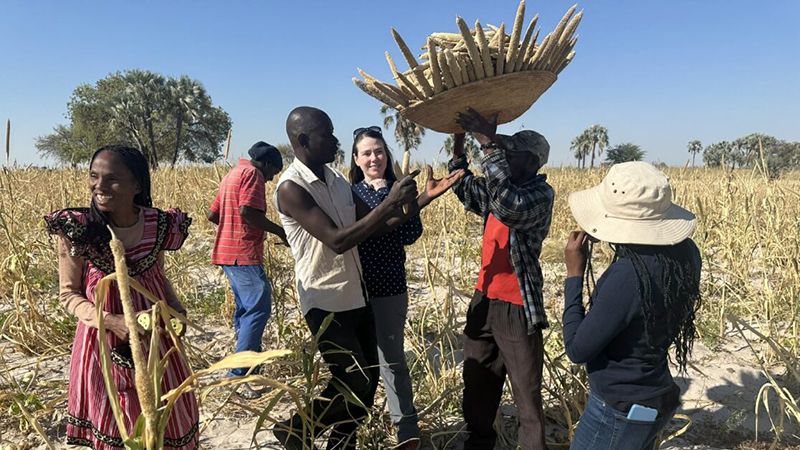
By Ronica Stromberg
When people ask Jill Motschenbacher what she does for a living, she sometimes answers, "I’m a Jill of all trades."
The Nebraska associate professor has been an electrician in the Navy, a first-generation college student, an administrator in higher education, a soil scientist and the lead on agricultural and engineering projects around the world.
Through work and personal travel, she has visited about 50 countries. She said all of these life experiences have led her to where she is now.
Motschenbacher started work in the School of Natural Resources in January 2024 and also works closely with graduate students in the Biological Systems Engineering and Agronomy and Horticulture departments. She designs plans to improve U.S. farm systems and, overseas, designs plans to make farms more resilient to climate change.
A spark for the design work and the three classes she teaches came when she took a USAID Farmer-to-Farmer trip after earning her doctorate. She was sent to a village in Kenya to create a five-year plan to get local people to use tractors and combines. The people were reluctant to mechanize when doing so might put others out of work.
Motschenbacher realized she had never received training in college to create such a plan.
"Nobody teaches you how to create a plan," she said. "You're taught how to write a manuscript, but you're not taught about how to incorporate all the different aspects of the community and what people are telling you."
Read the complete article and see more image of Jill's work at https://snr.unl.edu/aboutus/what/newstory.aspx?fid=1161